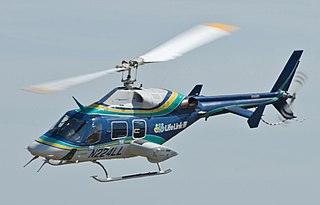
The Bell 222 is an American twin-engine light helicopter built by Bell Helicopter. The Bell 230 is an improved development with different engines and other minor changes.

The Bell 407 is a four-blade, single-engine, civil utility helicopter. A derivative of the Bell 206L-4 LongRanger, the 407 uses the four-blade, soft-in-plane design rotor with composite hub developed for the United States Army's OH-58D Kiowa Warrior instead of the two-blade, semi-rigid, teetering rotor of the 206L-4.

The Bell 427 is a twin-engine, multirole, light utility helicopter designed and manufactured by Bell Helicopter and Samsung Aerospace Industries. It has been replaced in production by the larger Bell 429.

The Hiller OH-23 Raven is a two, three, or four place, military light observation helicopter based on the Hiller Model 360. The Model 360 was designated by the company as the UH-12, which was first flown in 1948. Initially it was two-place helicopter powered by a piston engine that entered service in the late 1940s, it went on to be a popular military and civilian light helicopter in the late 20th century. A Hiller UH-12 was the first helicopter to make a transcontinental flight across the USA, in 1949. It served in the Korean War with U.N. forces and also in Vietnam. It was an important early helicopter and was widely used internationally, and in U.K service it was called the Hiller HT Mk 1 and Mk 2; and the U.S. Navy also used it as the HTE-1 for training. It was sold commercially as the UH-12, though some military operators used the company designation. Some later models were designed for turbine power, and version with 4-seats was also sold. In Canada, UH-13E served the military as the CH-112 Nomad.

The Schweizer 330 and S333 are turbine-powered developments of the Schweizer 300 light piston-powered helicopter. As of 2007, only the Schweizer 333 remains in production. In February 2009, the 333 was rebranded as the Sikorsky S-333. In 2018 the Schweizer R.S.G. bought the Schweizer Aircraft from Sikorsky Aircraft and it was rebranded as Schweizer S333 again.

The EurocopterAS355 Écureuil 2 is a twin-engine light utility helicopter developed and originally manufactured by Aérospatiale in France.
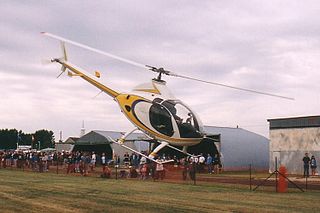
The RotorWay Exec is a family of American two-bladed, skid-equipped, two-seat kit helicopters, manufactured by RotorWay International of Chandler, Arizona and supplied in kit form for amateur-construction.

The RotorWay Scorpion is a family of helicopters manufactured by RotorWay International.

The Airbus Helicopters H175 is a 7-ton class super-medium utility helicopter produced by Airbus Helicopters. In China, the H175 is produced by the Aviation Industry Corporation of China (AVIC) as the Avicopter AC352. Originally launched as the Eurocopter EC175 and the Harbin Z-15, it has been referred to as being a 'super-medium' helicopter.

The Firestone XR-9, also known by the company designation Model 45, was a 1940s American experimental helicopter built by the Firestone Aircraft Company for the United States Army Air Forces. Only two were built.
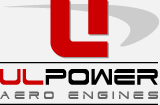
ULPower Aero Engines is a Belgian company which manufactures engines specifically designed for light aircraft/rotorcraft use.

The Revolution Mini-500 is a 1990s American single-seat light helicopter, designed and built by Revolution Helicopter Corporation as a kit for homebuilding.
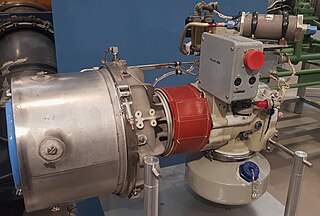
The Solar T62 Titan is an American gas turbine engine used mainly as a aircraft auxiliary power unit (APU), conventional power generator, turboprop engine for fixed-wing aircraft or turboshaft engine for helicopters. A new turbine version was developed as the Solar T66.

The Canadian Home Rotors Safari is a kit helicopter, produced by CHR International of Marianna, Florida, and formerly produced by Safari Helicopter of Ear Falls, Ontario.

The Dynali H2S is a Belgian helicopter, designed by Jacky Tonet and produced by Dynali of the Thines district of Nivelles. When it was available the aircraft was supplied as a kit for amateur construction or fully assembled, supplied ready-to-fly.
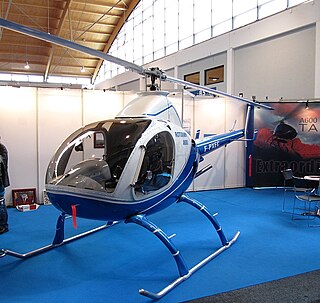
The RotorWay A600 Talon is an American helicopter, designed and produced by RotorWay International of Chandler, Arizona. The aircraft is supplied as a kit for amateur construction.

Redback Aviation is an Australian aircraft manufacturer based in Hoppers Crossing, Victoria. The company is engaged in the development of kit and plans-built helicopter designs for amateur construction.
The Hillberg Turbine Exec is an American helicopter turbine engine conversion kit for the piston-engined Rotorway Exec. It was designed and produced by Hillberg Helicopters of Fountain Valley, California. Now out of production, when it was available the kit was supplied for installation by amateur aircraft builders.

The Wombat Gyrocopters Wombat, sometimes called a Julian Wombat, is a British autogyro that was designed by Chris Julian and produced by Wombat Gyrocopters of St Columb, Cornwall, introduced in 1991. Now out of production, when it was available the aircraft was supplied as a kit for amateur construction.

The Multi-function Unmanned Helicopter "Black Widow" is a type of unmanned aerial vehicle developed in Georgia by STC Delta. The system is intended for military as well as for civil purposes. Spheres of usage are border policing, weapon aiming, signals intelligence, disaster monitoring and other roles. Armament of the UAV helicopter is 2 X M-134 minigun and 8 X unguided rocket missiles or 2 X M-134 minigun and 2 laser guided AT rockets. The vehicle is based on the Exec 162F. It was presented to public on the Independence Day of Georgia in 2015.





















